-

Erin Donahue -

Christina Barkanic -

Brittany Trott -

Emily Wiley -

Jessica Reilley -

Chris Raines -

Will Nichols -

Emily Reddy -

Michele Marchetti -

Michele Frank -

James Gherardi -

Kit Henshaw -

Christina and Erin -

Kim Tait -

Erin McKinney -

Steve Spanelli -

Sam Komlenic -

Katherine Taylor Grofic -

James Eisenstein -

Jamie Oberdick -

Anna Lombardo -

LacCreta Holland -

Tony Ricci -

Local Food Journey -

Laura Young -

Kristin Camplese -

Harrison's Fresh + Local -

Danielle Matalonis -

Kristine A. -

Linda Weaver -

Naomi Elle Schwartz -

Dana Stuchul -

Cara McShane -

Brittany Smith -

Jessica Illuzzi - Frosty
-

Jessica Paholsky -

James Sechrengost -

Brad Yeckley -

Maya Althouse -

Jordan Reabold -

Kim Chase -

Maria Bryant - Alexandrea Scott
All Posts including “fieldhand”
The Zen of Weeding
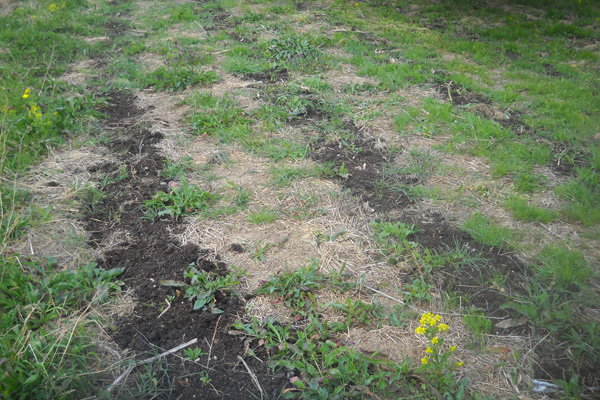
You may think that spending some 20 hours hand weeding asparagus would be an onerous task, but only because you haven’t had to slog through grading a big stack of blue books or papers. I’d much prefer the weeding, though my knees and back provide a dissenting view.
Continue Reading: The Zen of Weeding
![]() Posted by James Eisenstein on 05/14, 2012 at 01:13 PM
Posted by James Eisenstein on 05/14, 2012 at 01:13 PM
Why Organic? Part 5: GMOs
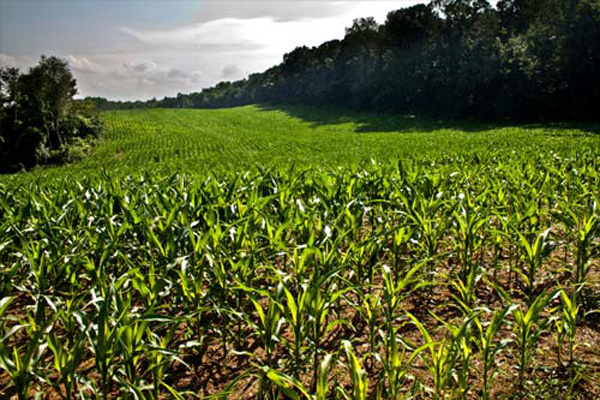
Two fundamental truths proved most useful to students in my environmental politics class—both from the field of ecology. The first is, “You can’t do just one thing.” The second explains why the first is true: “Everything is connected to everything else.”
Previous parts of this “Why Organic” series illustrate the usefulness of these two principles. A conventional farmer can’t just kill harmful insects or noxious weeds or boost crop growth with chemical fertilizers without doing other not so wonderful things. Not so wonderful things include killing pollinators and other beneficial insects, depleting the soil, reducing the nutritional content of food, and jeopardizing human health with pesticide and herbicide residues in food.
Continue Reading: Why Organic? Part 5: GMOs
![]() Posted by James Eisenstein on 04/16, 2012 at 08:31 AM
Posted by James Eisenstein on 04/16, 2012 at 08:31 AM
Why Organic? Part 4: The Biosphere
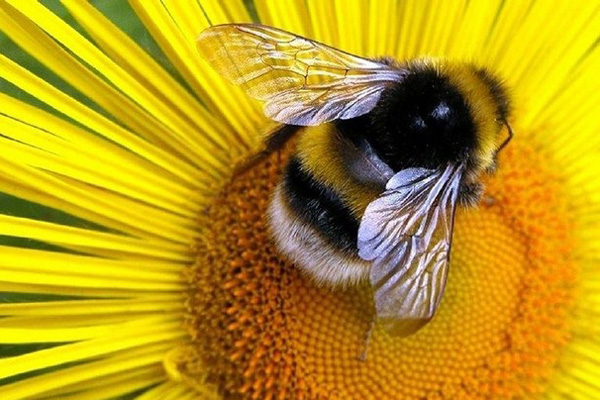
Parts 1 through 3 of the “Why Organic?” series explained that organically grown food is more nutritious—reason enough to eat (and produce) it—and contains far fewer pesticide residues, whose effects are not fully known. But if that isn’t enough to convince you to eat organic, perhaps contemplating the ecological damage caused by conventional agriculture will change your mind.
Continue Reading: Why Organic? Part 4: The Biosphere
![]() Posted by James Eisenstein on 04/09, 2012 at 07:10 PM
Posted by James Eisenstein on 04/09, 2012 at 07:10 PM
Farm Diary: Pruning in March
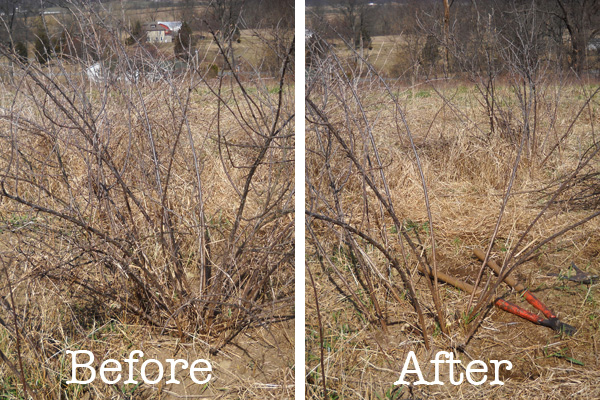
Most people know that pruning does not consist of attaching prunes to fruit trees and bushes, despite what Amelia Bedelia understood it to mean. But beyond that, I’ll wager that most folks who read Unpaid Field Hand only know that it involves some sort of cutting and thinning of fruit trees and canes.
Of course, you can learn all about it by going on the web and googling “fruit pruning.” But even after reading the 7,280,000 results available, you might be forgiven for still not knowing just how to do it. And for good reason. That’s because even the most knowledgeable experts sometimes give contradictory advice. Even Michael Phillips, whose book The Apple Grower is considered an authority to many apple cultivators, confesses that he hopes to know how to do it by the time he is eighty.
Continue Reading: Farm Diary: Pruning in March
![]() Posted by James Eisenstein on 03/30, 2012 at 09:12 AM
Posted by James Eisenstein on 03/30, 2012 at 09:12 AM
Why Organic? Part 3: Pesticides
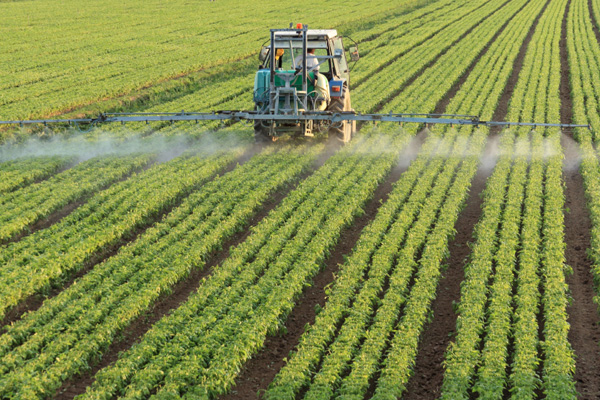
It’s confession time. I made a small mistake, so uncharacteristic of me, as I’m sure you will agree. You see, in Part 3 of my series “Why Organic?” I wanted to talk about how pesticides are bad for our health and the environment, and then do the same for GMOs.
I intended to make a few, short, simple points about the health effects of pesticides—like they aren’t good for us (especially children) and they aren’t adequately tested and regulated.
My mistake? I decided to do a little Google research for the health effects paragraph, anticipating my inquiring readers’ insistent demands for “evidence.” The more I found out, the clearer it became that just one paragraph wouldn’t do.
Continue Reading: Why Organic? Part 3: Pesticides
![]() Posted by James Eisenstein on 03/22, 2012 at 11:09 AM
Posted by James Eisenstein on 03/22, 2012 at 11:09 AM
Farm Diary: Seeding Fun in Late February
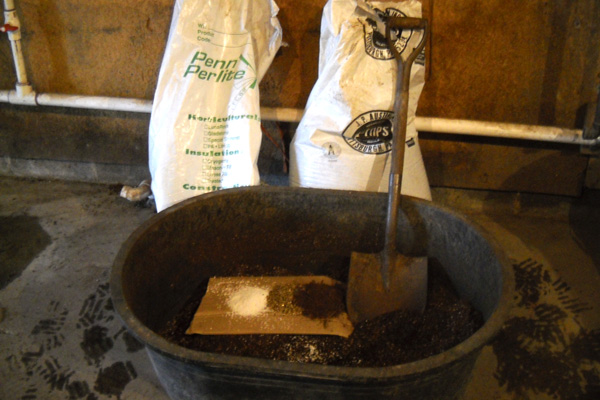
Seeding is a critical component of farming. No seed flats planted in February means no crops later. It is a laborious and painstaking, but oddly, satisfying task that I tackled two weeks ago. Here is how it works.
Continue Reading: Farm Diary: Seeding Fun in Late February
![]() Posted by James Eisenstein on 03/07, 2012 at 08:59 AM
Posted by James Eisenstein on 03/07, 2012 at 08:59 AM
Farm Diary: Late Winter on the Farm
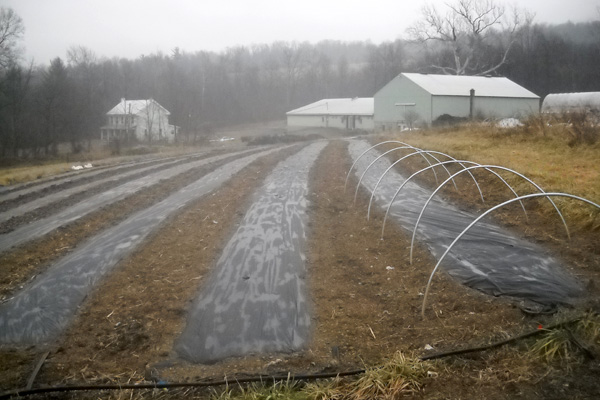
Every occupation has its rhythm. The rhythms of farming are special because they coincide with earth’s yearly swing around the sun. January and February provide an opportunity to contemplate the prospects of the upcoming growing season. So my unpaid field hand’s diary for 2012 begins with news from winter.
Continue Reading: Farm Diary: Late Winter on the Farm
![]() Posted by James Eisenstein on 02/29, 2012 at 10:39 AM
Posted by James Eisenstein on 02/29, 2012 at 10:39 AM
Why Organic? Part 2: Nutrition
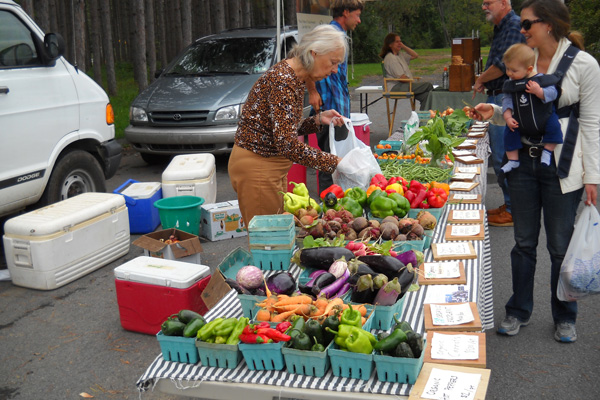
If, as I argued in Part 1, organically produced food is more nutritious, it makes sense to eat it. It may cost a little more, but you are getting more for your money.
Over the past 15 years, we’ve learned more about complex healthy soils. They are teaming with little critters, beetle grubs, earthworms, bacteria by the billions, and fungi. Together, they facilitate plants’ ability to obtain micro-nutrients and minerals essential to good health. Compost, manures, and other organic substances in the soil provide these organisms with what they need to do their thing.
Continue Reading: Why Organic? Part 2: Nutrition
![]() Posted by James Eisenstein on 02/21, 2012 at 10:38 AM
Posted by James Eisenstein on 02/21, 2012 at 10:38 AM
Why Organic? Part 1: Introduction
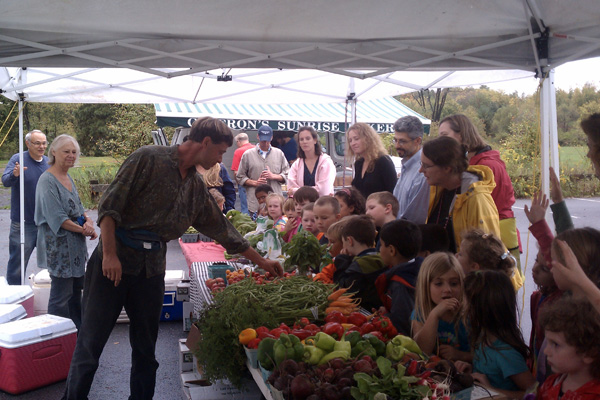
My brother, a witty fellow indeed, never misses an opportunity to respond to my every utterance of the term “organic food” by saying that he much prefers it to inorganic food like rocks and plastic. His response follows a long tradition of cleverly tormenting his little brother, but it also revives my suspicion that many people don’t actually know what “organic food” is or why anyone would want to produce it or consume it. If this sounds like you (or even if it doesn’t), read on.
Continue Reading: Why Organic? Part 1: Introduction
![]() Posted by James Eisenstein on 01/25, 2012 at 12:08 PM
Posted by James Eisenstein on 01/25, 2012 at 12:08 PM
Weather Woes
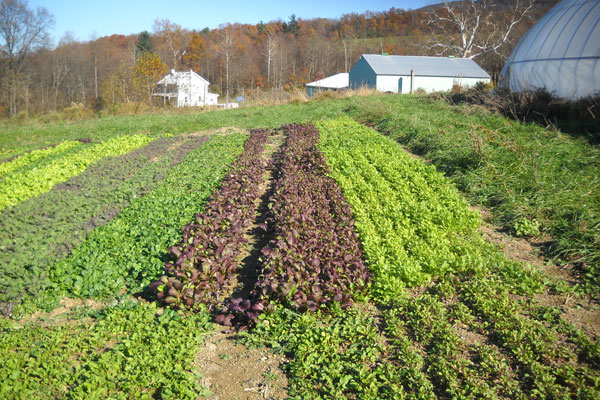
For most people, the weather gives us something to talk about besides religion and politics. Bad weather can produce gloom, glorious days joy, rainy spells inconvenience. But really, we live indoors and travel mostly in enclosed spaces, so life pretty much goes on regardless of the weather. Not so for folks who work outdoors. Bad weather means no work for roofers and tree trimmers. Rain means less pleasant work for garbage men and traffic police.
But for farmers, the state of the weather has profound consequences that most people are not even aware of. So read on and improve your comprehension of just what a huge impact the weather has on folks who grow your food.
Continue Reading: Weather Woes
![]() Posted by James Eisenstein on 12/07, 2011 at 03:36 PM
Posted by James Eisenstein on 12/07, 2011 at 03:36 PM
Tags: fieldhand |
Fall Garlic Fun on the Farm
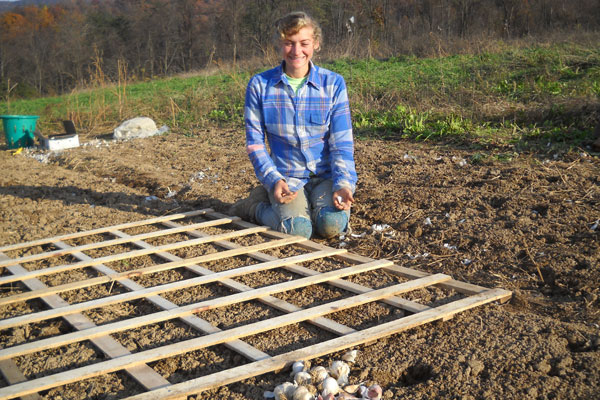
It is now late fall on the farm, and the last vegetables have been harvested. Time to sit by the fire, do our nails, and dream of spring, right? Yes? Shows how much you know about life on an organic vegetable farm.
Now is the time to plant next year’s garlic. Notice the nifty planting grid our intrepid intern Hannah is using to make sure the cloves are properly spaced. If you squint and look at the front of the wooden form, you’ll discover both some intact garlic bulbs and some individual cloves ready to stick into the soil.
Continue Reading: Fall Garlic Fun on the Farm
![]() Posted by James Eisenstein on 11/14, 2011 at 08:59 AM
Posted by James Eisenstein on 11/14, 2011 at 08:59 AM
Unpaid Field Hand: Name this Crop
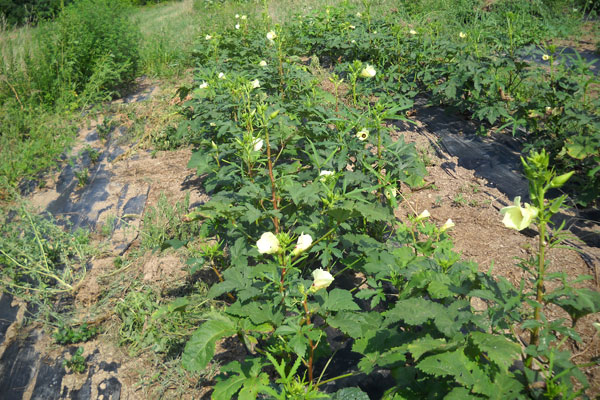
Your chances of identifying this mystery crop increase in direct proportion to how far south you grew up. These plants like really hot weather. In fact, they are not supposed to grow very well in central Pennsylvania. But that doesn’t stop my son, John.
Continue Reading: Unpaid Field Hand: Name this Crop
![]() Posted by James Eisenstein on 09/21, 2011 at 01:11 PM
Posted by James Eisenstein on 09/21, 2011 at 01:11 PM
Tags: fieldhand |
Unpaid Field Hand: Name this Crop
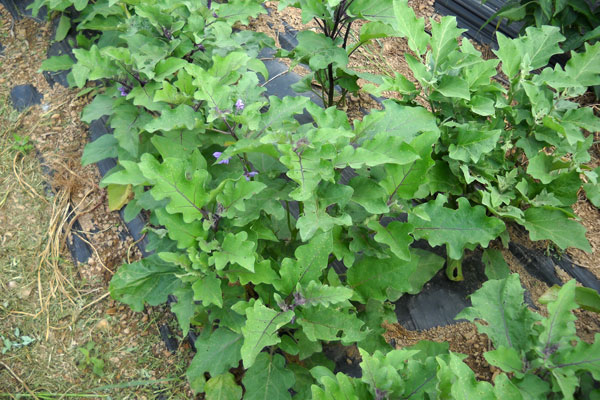
We have lots of customers who buy lettuce, onions, carrots, and beets. Then there are many who merely stroll by and say, “Everything looks beautiful.” True Fact: People who say, ”Everything looks beautiful” really mean, “I’m not going to buy a single thing.”
What is this wonderful, under-appreciated vegetable?
Continue Reading: Unpaid Field Hand: Name this Crop
![]() Posted by James Eisenstein on 09/14, 2011 at 10:37 AM
Posted by James Eisenstein on 09/14, 2011 at 10:37 AM
Unpaid Field Hand: Mystery Crop Update
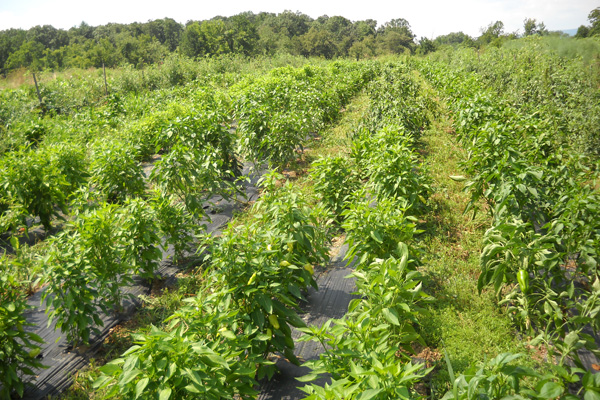
I suspect that my faithful followers have been distracted from their routine activities wondering how the various “name this crop” vegetables are doing. Fear not! I have a few updates for you.
Continue Reading: Unpaid Field Hand: Mystery Crop Update
![]() Posted by James Eisenstein on 09/06, 2011 at 12:54 PM
Posted by James Eisenstein on 09/06, 2011 at 12:54 PM
A Local Food Fantasy
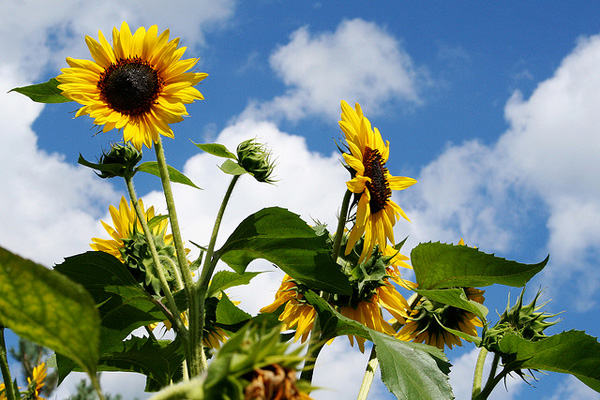
Farm work can enrich your fantasy life. While weeding our new currant and gooseberry patch the other day, I let my mind wonder …
How close could we get to a truly local food system here in central Pennsylvania? Could we become one of the leading centers of the local food movement in the United States?
Continue Reading: A Local Food Fantasy
![]() Posted by James Eisenstein on 08/22, 2011 at 11:35 AM
Posted by James Eisenstein on 08/22, 2011 at 11:35 AM
Tags: fieldhand |
How to Plan a Day’s Work on a Vegetable Farm
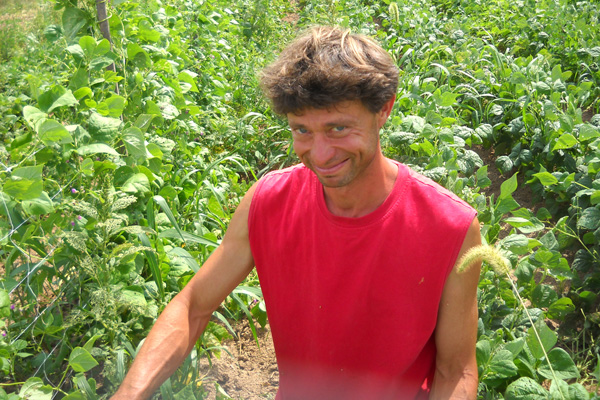
For those of you who are having trouble falling asleep beset by curiosity over how farmers plan their workdays, this post is for you. Actually, it is a laughably simple two-step process. Step 1: List everything that absolutely must be done. Step 2: Rank the tasks in order of importance and do the work. Ready?
Continue Reading: How to Plan a Day’s Work on a Vegetable Farm
![]() Posted by James Eisenstein on 08/04, 2011 at 01:48 PM
Posted by James Eisenstein on 08/04, 2011 at 01:48 PM
Unpaid Field Hand: Name this Crop
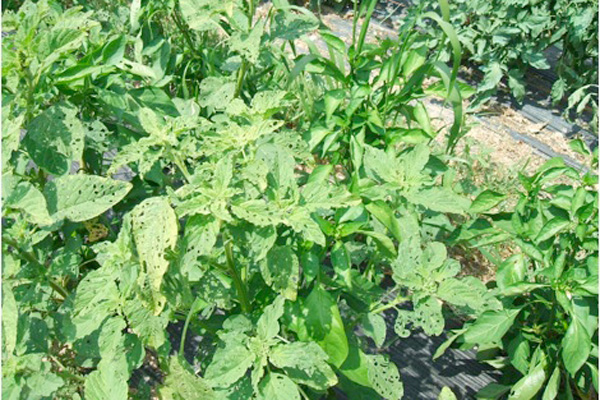
Driving around central Pennsylvania, I typically see entire fields dedicated to neat rows of corn and soybean plants – all instantly recognizable. And photos from mega-agribusinesses show similarly uniform fields. Any media consultant smarter than a brick would advise a farmer client to only depict similarly pristine views of growing crops.
But what do you notice about the photo of this farm field?
Continue Reading: Unpaid Field Hand: Name this Crop
![]() Posted by James Eisenstein on 07/25, 2011 at 01:21 PM
Posted by James Eisenstein on 07/25, 2011 at 01:21 PM
Unpaid Field Hand: Food Fear Part 1
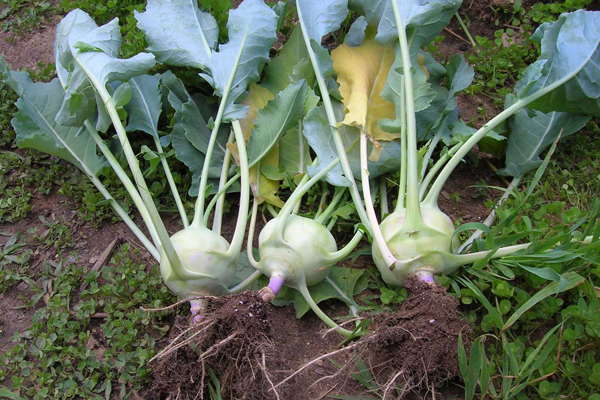
Big hairy spiders, slithering snakes, white-faced hornets and yellow jackets—these are common fears among many people. They know they have them, and they are typically not shy about sharing them with others. I have recently realized, however, that there is one fear many people have that they do not admit to having. Indeed, they might not even know they have it.
I’m talking about food fear, specifically the fear of tasting or cooking something new.
Continue Reading: Unpaid Field Hand: Food Fear Part 1
![]() Posted by James Eisenstein on 07/12, 2011 at 09:10 AM
Posted by James Eisenstein on 07/12, 2011 at 09:10 AM
Tags: fieldhand |
Unpaid Field Hand: Name this Crop
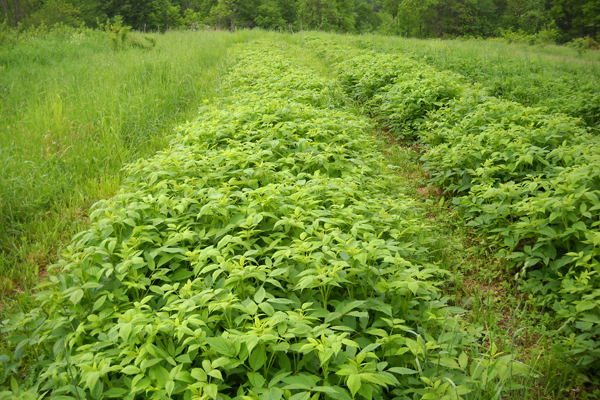
If you are still reeling from failing to identify the asparagus plants in my first blog post, redemption can be yours. The very immature crop pictured above will produce (with some luck) one of the most sought after food items. What surprises me is that despite their popularity (even though they are pricey), they are not difficult to grow. Anyone reading this who has access to a mostly sunny patch can do it. In addition to being delicious, they contain significant amounts of polyphone antioxidants said to fight cancer and other diseases. One source indicates that one cup provides 69% of the daily requirement for vitamin C.
Continue Reading: Unpaid Field Hand: Name this Crop
![]() Posted by James Eisenstein on 07/01, 2011 at 08:59 AM
Posted by James Eisenstein on 07/01, 2011 at 08:59 AM
Tags: fieldhand | raspberries |
Unpaid Field Hand: The Story of Peas
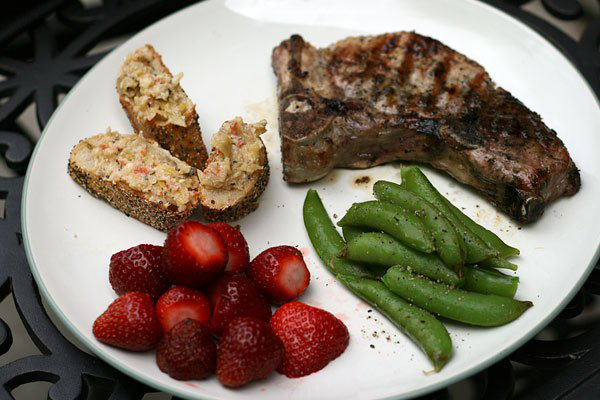
Last Tuesday night, Emily Wiley posted a picture of her dinner to the Boalsburg Farmers Market Facebook page. The caption said: “Dinner tonight courtesy of the Boalsburg Farmers Market. Pork chops from Cow-a-Hen Farm. Snap peas from Jade Family Farm. Bread from Gemelli Bakery with lemon-artichoke pesto from Fasta & Ravioli Co. And strawberries from Way Fruit Farm. Happiness on a plate.”
Emily knew the peas she bought were grown at Jade Family Farm, but how did the green pods find their way to our farm and then to the market? Well, this unpaid field hand decided to tackle that question.
Continue Reading: Unpaid Field Hand: The Story of Peas
![]() Posted by James Eisenstein on 06/21, 2011 at 12:19 PM
Posted by James Eisenstein on 06/21, 2011 at 12:19 PM
Unpaid Field Hand: Welcome to the Farm
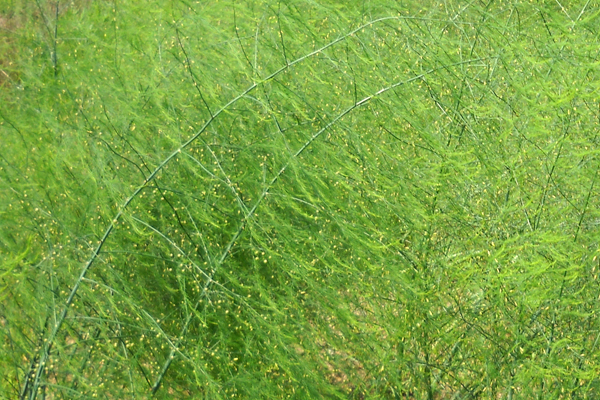
Can you identify what vegetable growing is pictured? No, really, look carefully and give it try.
Why even ask, you might ask? Because much of the knowledge our grandparents had about the variety names of fruits and vegetables and how they grew has been lost, and I think that is too bad. They knew the names of many apple and tomato varieties, for example, and what each was good for. Part of our renewed interest in what we eat as we embark on a local food journey should involve regaining this knowledge.
Continue Reading: Unpaid Field Hand: Welcome to the Farm
![]() Posted by James Eisenstein on 06/10, 2011 at 12:34 PM
Posted by James Eisenstein on 06/10, 2011 at 12:34 PM
Tags: fieldhand |
Unpaid Field Hand: Welcome!
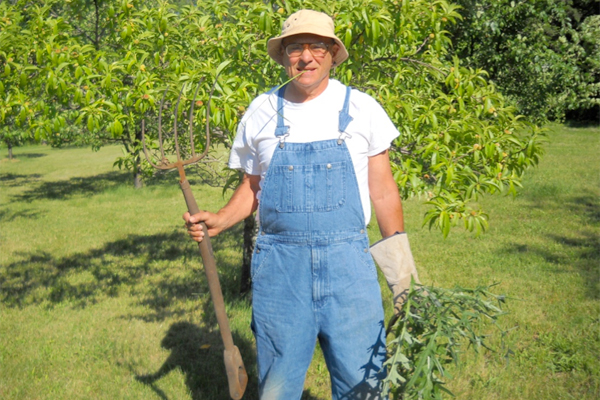
Please welcome our newest blogger, James Eisenstein, the “Unpaid Field Hand!”
Eisenstein taught American politics, public policy, environmental politics, and agricultural policy classes at Penn State for over 35 years. He left the university to embark on a new career as an unpaid field hand at his son’s certified organic vegetable (and fruit) farm: Jade Family Farm in Juniata County.
He joins the Local Food Journey to talk about where food comes from, along with the virtues of locally grown, fresh food. Check back later this week for Eisenstein’s first post when he asks how much we really know about life on a farm.
Continue Reading: Unpaid Field Hand: Welcome!
![]() Posted by Emily Wiley on 06/06, 2011 at 12:58 PM
Posted by Emily Wiley on 06/06, 2011 at 12:58 PM
Tags: fieldhand |
Page 1 of 1 pages


